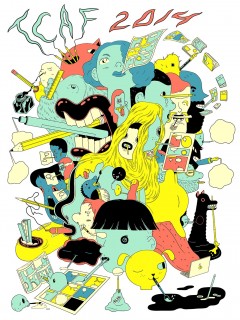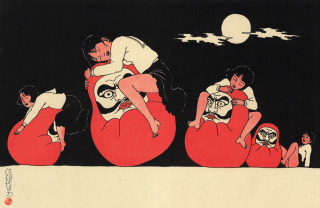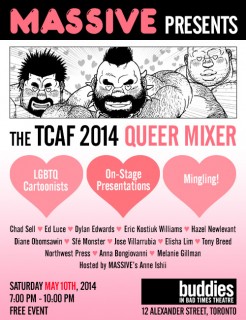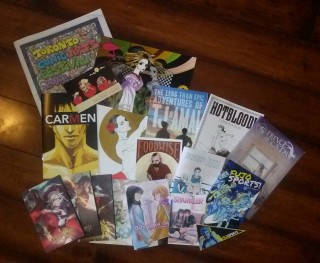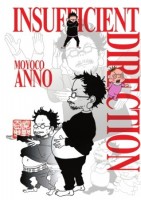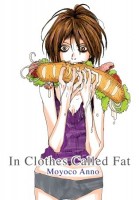 Creator: Moyoco Anno
Creator: Moyoco Anno
U.S. publisher: Vertical
ISBN: 9781939130433
Released: July 2014
Original release: 2002
There is a select group of mangaka whose work I will buy without question or hesitation no matter what it is. Out of those creators, Moyoco Anno is one of my favorites. She works in multiple genres for multiple demographics and I have never failed to have been impressed by her manga. Anno’s work has been in print in English since 2003, first by Tokyopop and then followed by Viz Media and Del Rey Manga. Most recently, Vertical has been responsible for releasing more of Anno’s manga in English with superb editions of Sakuran, Insufficient Direction, and now In Clothes Called Fat. I was thrilled to learn that In Clothes Called Fat had been licensed. Collected in a single volume in Japan in 2002, the manga originally began serialization in 1997. Vertical published the English-language edition of In Clothes Called Fat in 2014, including a few pages of Anno’s color work which is always nice to see.
Noko Hanazawa is a young office worker under a fair amount of stress. She doesn’t get along very well with her coworkers and is frequently criticized by her superiors. There are, however, two things that bring uneasy comfort to Noko: Saito, her boyfriend of eight years, and food. Because Noko eats to alleviate her anxiety, she has also gained a significant amount of weight. Some of the other women in her office, especially Mayumi, bully her for being fat. Men either despise her or fetishize her because of how she looks. Noko eventually convinces herself that all of her unhappiness stems from being overweight and unattractive and that the only solution to her problems is to become skinny. While others urge her not to lose her fat, all for their own selfish reasons, Noko is determined to do anything she has to in order to drop pounds, exchanging one unhealthy relationship with food for another. Unfortunately, weight isn’t the only thing that Noko stands to lose in the process, something that she may only realize after the fact.
Obsession with appearance and the pursuit of happiness, identity, confidence, self-worth and self-esteem are all themes that frequently recur in Anno’s work. In some of her manga, such as Flowers & Bees, they are used for purposes of black comedy. While In Clothes Called Fat isn’t without humor–Vertical calls it a “dark comedy of manners,” which is very apt–Anno’s approach to the themes in the manga is more honest and bleak. It’s the brief moments of dark humor and slight absurdity that make the tragic tale bearable. In Clothes Called Fat is a tough read; there isn’t much happiness to be found in the story or its characters. However, the manga is an extraordinarily compelling and searing work. Noko and her struggles may be the focal point of In Clothes Called Fat, but she isn’t the only person in the manga who is forced to face some very harsh and hard truths about themselves and who they are as people. Some of them are able to eventually cope with reality while others will continue to try to live in denial.
As much as In Clothes Called Fat is about outward appearances, it’s even more about the characters’ internal turmoil and states of mind. Noko and the others use her weight as an excuse. She blames her unhappiness on her size and they torment her because of it, but that’s only an attempt to make themselves feel better and to assuage or avoid their own anxieties. The fixation on weight is merely a symptom of much more problematic underlying issues. Anno’s artwork in In Clothes called Fat emphasizes both the inner and outward conflicts of the characters. Backgrounds tend to be fairly minimal; the focus of the manga is very much on the people themselves: their facial expressions, their interactions with one another, and perhaps most importantly their body language. In Clothes Called Fat explores the extremes of ugliness and beauty, both physical and psychological, in appearance and in action. In Clothes Called Fat is a powerful work and easily one of the best manga–one of the best comics–that I’ve recently read. It can be uncomfortable, but it is also exceptional in its depth.
